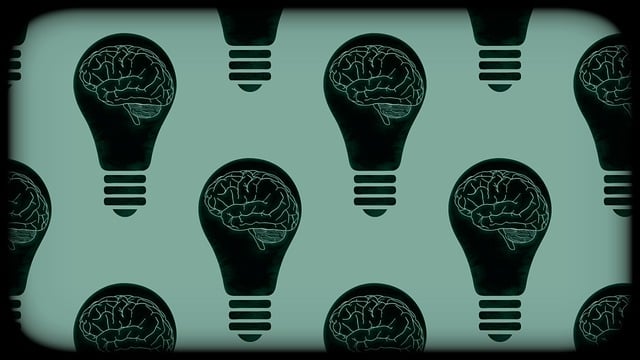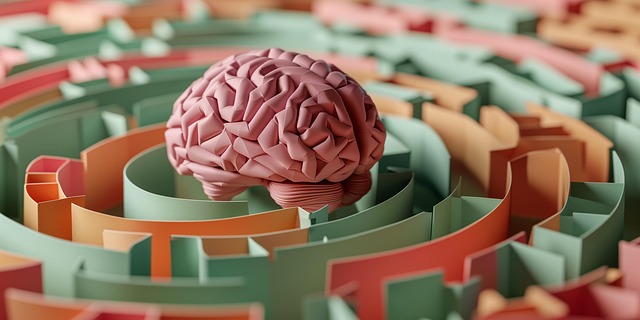Holistic mental health integrates physical, emotional, and spiritual well-being, addressing lifestyle, environment, relationships, and beliefs. Techniques like mindfulness, nature immersion, nutrition therapy, self-care rituals, acupuncture, meditation, yoga, and gratitude promote stress reduction, resilience, and self-connection, leading to improved overall well-being and life satisfaction. Success measured through increased awareness, healthier habits, and enhanced mental clarity.
Holistic healing practices offer a multifaceted approach to mental well-being, addressing the intricate interplay between mind, body, and spirit. This article delves into the diverse dimensions of holistic mental health, exploring techniques that nurture mental clarity and emotional resilience. From mindfulness’s calming effects to nature’s restorative power, we uncover rituals and therapies that promote overall balance. By integrating these practices into daily life, individuals can embark on a transformative journey towards enhanced mental health and well-being.
Understanding Holistic Mental Health Approach

Holistic mental health is an integrated approach that considers the interconnectedness between a person’s mental, emotional, and physical well-being. Instead of focusing solely on symptoms, this method views each individual as a whole, addressing all aspects that contribute to their overall mental health. By taking into account factors like lifestyle, environment, relationships, and personal beliefs, holistic practitioners aim to bring about balanced and sustainable healing.
This approach often involves a range of techniques such as mindfulness meditation, yoga, nutrition therapy, and energy healing. These practices are designed to promote self-awareness, reduce stress, enhance resilience, and foster a deeper connection with oneself. By nurturing both mind and body, holistic mental health seeks to enable individuals to lead more fulfilling lives, free from the constraints of mental health challenges.
Mindfulness: A Cornerstone of Holistic Healing

Mindfulness serves as a cornerstone in the realm of holistic healing, focusing on the intricate connection between one’s mental and physical well-being. It involves cultivating present-moment awareness, enabling individuals to observe their thoughts and emotions without judgment. This ancient practice has gained prominence in today’s digital era, where stress and anxiety often thrive amidst the hustle and bustle of daily life. By integrating mindfulness techniques, such as meditation and deep breathing exercises, holistic mental health approaches aim to soothe the mind, reduce symptoms of various ailments, and promote overall balance.
In terms of holistic healing, mindfulness is not merely a fleeting trend but a powerful tool to navigate life’s challenges. It empowers folks to become active participants in their journey towards healing, fostering self-awareness and resilience. This shift from being a passive recipient of stress to an engaged observer can lead to profound transformations, enhancing one’s ability to cope with stressors and nurturing a deeper sense of inner peace.
Nature's Role in Mental Well-being

In the realm of holistic mental health, nature plays a pivotal role in fostering well-being and promoting healing. The calming effects of natural environments have been scientifically proven to reduce stress, anxiety, and depression, creating a sense of tranquility and inner peace. Spending time outdoors, whether it’s a walk in the park, hiking in the woods, or simply sitting by a window with a view of greenery, can significantly impact our mental state.
Nature acts as a powerful therapeutic tool, offering a respite from the chaos of daily life. The sights, sounds, and smells of natural landscapes can stimulate the senses, boost mood, and enhance cognitive function. Additionally, connecting with nature encourages mindfulness and a sense of grounding, allowing individuals to develop a deeper appreciation for the present moment. This holistic approach to mental health emphasizes the intrinsic link between our well-being and the environment that surrounds us.
Nutrition and Its Impact on Mind and Body

Nutrition plays a fundamental role in holistic mental health, influencing both mind and body interconnectedly. The food we consume doesn’t just fuel our bodies; it impacts our brain chemistry, hormonal balance, and overall emotional well-being. Essential nutrients like omega-3 fatty acids, found in fish, nuts, and seeds, are known to support brain health and cognitive function while promoting a sense of calm and clarity. Similarly, vitamins and minerals from fruits, vegetables, and whole grains contribute to stable mood regulation and enhanced resilience against stress.
A holistic approach to mental health recognizes that addressing nutritional needs is not merely about treating symptoms but nurturing the underlying foundations of overall well-being. By focusing on nutrient-dense foods, individuals can experience improved energy levels, better sleep quality, and heightened mental clarity—all crucial aspects for cultivating a strong mind-body connection, central to holistic mental health practices.
The Power of Self-Care Rituals

In the realm of holistic mental health, self-care rituals stand as potent tools for cultivating well-being. These practices, often rooted in ancient traditions, encourage individuals to connect with their inner selves and nurture their minds, bodies, and spirits. By incorporating rituals such as meditation, journaling, or engaging in nature walks, one can create a sense of sanctuary and balance amidst the chaos of daily life.
Self-care rituals provide an opportunity for introspection and self-reflection, allowing individuals to identify and address underlying emotional needs. They offer a respite from the relentless pace of modern living, enabling folks to reconnect with their innate resilience and inner strength. In today’s digital era, where stress and anxiety often thrive, prioritizing these practices is more crucial than ever for fostering holistic mental health.
Exploring Alternative Therapies for Mental Health

In the realm of holistic mental health, exploring alternative therapies offers a vibrant tapestry of solutions beyond conventional medicine. These practices aim to nurture the mind, body, and spirit as interconnected entities, recognizing that emotional well-being is deeply tied to overall physical and spiritual health. Techniques such as acupuncture, herbalism, meditation, and yoga have been practiced for centuries and are gaining recognition in modern mental healthcare.
Delving into these alternative therapies can provide individuals with effective tools to manage stress, anxiety, and depression. For instance, acupuncture, an ancient Chinese practice, has been shown to balance mood by stimulating specific points in the body, while herbal remedies offer natural ways to support mental health. Similarly, meditation and yoga cultivate mindfulness and inner peace, fostering a sense of calm that can be incredibly beneficial for those navigating mental health challenges.
Connection: Social and Spiritual Aspects of Healing

Holistic healing recognizes that physical, emotional, social, and spiritual well-being are interconnected. This understanding emphasizes the importance of connection in the healing process. Social interactions play a vital role in holistic mental health, as they provide support networks, foster a sense of belonging, and contribute to overall wellbeing. Spiritual practices, such as meditation or mindfulness, offer individuals a means to tap into their inner strength and cultivate resilience, further enhancing their ability to navigate life’s challenges.
By integrating social connections and spiritual practices, holistic healing approaches aim to address the root causes of distress rather than merely treating symptoms. This comprehensive perspective acknowledges that healing is not solely an individual endeavor but is profoundly influenced by our relationships and sense of purpose. As a result, these aspects contribute significantly to overall mental health and resilience.
Integrating Holistic Practices into Daily Life

Incorporating holistic healing practices into daily routines can significantly contribute to overall well-being, encompassing both physical and holistic mental health. This approach recognizes that our minds, bodies, and spirits are interconnected, and each aspect influences the others. Simple yet powerful techniques like mindfulness meditation, deep breathing exercises, and regular movement (e.g., yoga or walking) serve as gateways to a calmer, more balanced state of being. These practices not only reduce stress but also enhance self-awareness and emotional resilience.
Beyond these foundational practices, engaging with nature, practicing gratitude, and cultivating meaningful relationships further enrich holistic mental health. Activities such as journaling, spending time outdoors, and participating in creative pursuits allow for expression and reflection, fostering a deeper connection to oneself. By seamlessly integrating these holistic practices into everyday life, individuals can experience improved mental clarity, enhanced resilience, and a profound sense of inner peace.
Measuring Success in Holistic Mental Health Journey

Measuring success in holistic mental health is a deeply personal and nuanced process. Unlike traditional models that often rely on clinical diagnoses and symptom reduction, holistic healing focuses on overall well-being—mental, emotional, physical, and spiritual. Therefore, success isn’t quantified by specific metrics but rather by an individual’s subjective sense of balance, contentment, and vitality. This journey involves cultivating awareness, adopting healthier habits, and developing coping mechanisms that promote resilience.
Progress in holistic mental health may manifest as increased self-acceptance, enhanced emotional regulation, improved sleep quality, heightened energy levels, and a deeper connection to one’s inner being. It could also be reflected in better relationships, a more positive outlook on life, and the ability to navigate challenges with grace and composure. Regular reflection, setting achievable goals, and maintaining a journal to track changes over time can help individuals gauge their progress along this transformative path.
